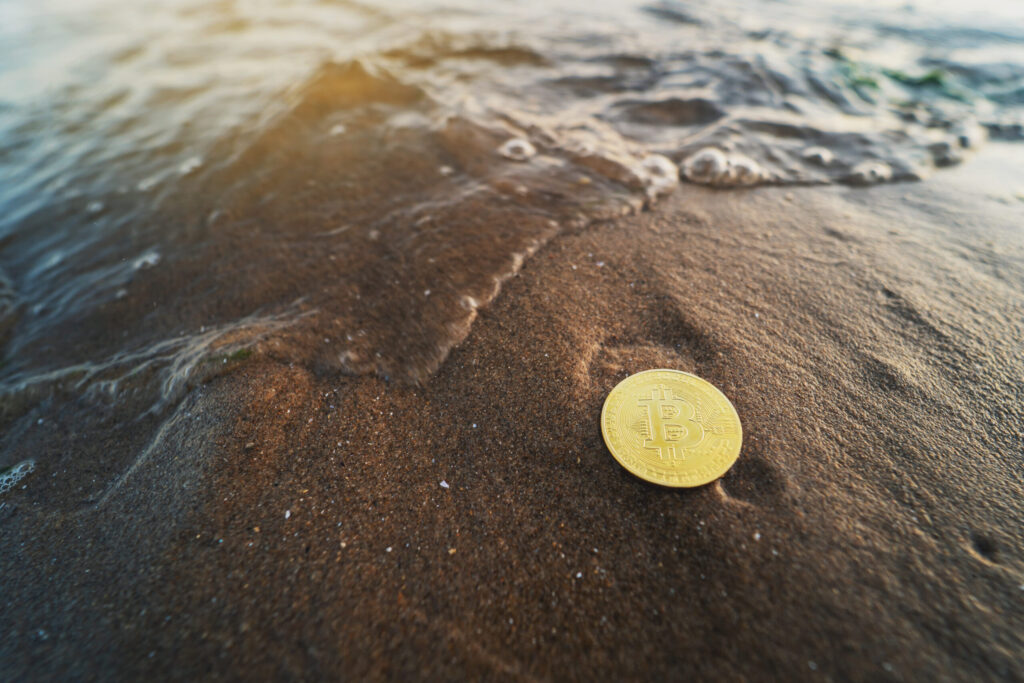El Salvador’s bitcoin gamble
Latin America’s first millennial president, the charismatic Nayib Bukele, loves to give people something to talk about and enjoys seeing how the world has set its eyes on El Salvador. Recently, the country made headlines all over the globe as it became the first and only country in the world to declare bitcoin, the booming digital currency, as legal tender, after it had been without its own currency since 2001, when the government eliminated the national currency in favor of the US dollar.
The young president has been applauded for how he has acted on important national issues, such as his measures against extreme violence and gangs that plague the country or how he handled the pandemic. Yet, his new initiative is raising eyebrows. Does he have the population’s best interest at heart or is it merely a smokescreen to boost his international image at a time when the country is looking to escape the American and international corporate influences, and instead move closer to China?
Bukele’s decision has raised many questions. What are his plans for El Salvador? Will El Zonte (Bitcoin Beach) become the inspiration for his “Bitcoin Law”? In El Zonte, a simple Salvadoran beach town with dirt roads and a faulty drainage system, popular among surfers because of its intense waves, a non-governmental organization backed by an unknown donor started encouraging the use of cryptocurrencies, to alleviate the poverty that struck its 3000 inhabitants. Several experts believe that what happened in El Zonte (Bitcoin Beach) is artificial and therefore not comparable to what would happen if the currency were to be introduced as a national currency, since Bitcoin was introduced to this area through grants from an unknown donor in 2019.
Perhaps Bukele is aspiring to turn El Salvador into a Bitcoin tax haven, or perhaps he is trying to take a hopeful first step towards an economy that frees people from the yoke of political and financial powers. El Salvador’s application of bitcoin could even become the blueprint for other countries that have been affected by the collapse of their local currency or hyperinflation. Could this initiative produce a domino effect? Cuba has announced that they plan to follow in El Salvador’s footsteps and recognize and regulate mainstream cryptocurrency transactions in an attempt to break the power of the dollar in Cuba.
Digitalization is also an important issue to consider. In many Latin American countries, a significant share of the population has little to no education, making them easy targets for phishing and other scams, at a time when ransomware attacks are being enabled by the preferred currency of cyber criminals: bitcoin. However, it should be noted that the creativity and effort of Latinos knows no limits, especially when it comes to money, so digitalization shouldn’t become too big a problem. On the contrary, it may be a solution that helps with inclusion of 70% of the population that does not have access to the financial system and has no digital options to pay bills. In El Zonte, about 500 families of fishermen and farmers, who have never had access to a bank account or to electronic transactions have now become “small rural investors” and experts at trading bitcoin.
El Salvador deserves the best of luck, as the adoption of bitcoin can also be considered a very risky move. Public finance would be exposed to the sudden devaluations of this cryptocurrency, which has experienced severe single day drops (-22%) in the past and has seen great volatility on the back of social media comments by highly influential characters. A prime example of that was the seemingly instant drop caused by mogul Elon Musk, when he announced that he would no longer accept Bitcoin payments for his Tesla vehicles because of his environmental concerns, since Bitcoin mines consume a lot of energy.
Yet, that does not seem to trouble Salvadorans, the inhabitants of El Zonte in particular, who are of the opinion that ‘he who does not risk, does not win’. It also seems to be the opinion of a great optimist or perhaps of someone for whom it is easy to take big risks because they do not have much to lose. Bukele enjoys the attention and knows that a good performance will elevate his image to show that he is willing to go all the way, no matter the consequences… but does anyone really know what those consequences may be? If you have bitcoin and you like surfing, you will find fun waves to surf in El Zonte in El Salvador. Let’s hope that the big influencers do not stir the tide so much. So far, the young president has been very lucky in his decisions, let’s wait and see if this has been a good move.
Written by Fabian Ayala Rojas

Bitcoin – el capricho de El Salvador
El primer presidente Millennial de América latina, el joven carismático Nayib Bukele no deja de dar motivos para hablar y disfruta viendo como el mundo pone sus ojos en El Salvador, un país sin moneda propia desde el 2001 cuando el gobierno elimino su moneda nacional en favor del dólar estadounidense, ahora se convierte en único país del mundo o “El primero” en decretar el Bitcoin como moneda de curso legal, la divisa en auge de forma digital.
El joven mandatario ha sido muy aplaudido por su determinación en temas muy importantes como el manejo de la extrema violencia y las pandillas que tanto azotan el país, o la determinación como afronta y maneja la pandemia. ¿Pero… piensa ahora en el bolsillo de su pueblo o es una simple cortina de humo para cambiar su imagen a nivel internacional en un momento en el que el país se está alejando de Estados Unidos y los organismos internacionales y acercándose a China?
Son muchas las preguntas que por estos días todos se cuestionan. ¿Qué aspira Bukele para El Salvador? En que se convertirá El Zonte (Playa Bitcoin) la inspiración para su “Ley Bitcoin”, una playa salvadoreña visiblemente pobre con una población de 3000 habitantes, con caminos de tierra y un sistema de drenaje defectuoso, popular entre los surfistas por su intenso oleaje, donde una organización no gubernamental con el respaldo financiero de un donante que nadie conoce, ha fomentado el uso de criptomonedas desde 2019 para aliviar la pobreza que golpea a sus habitantes.
Tal vez aspire convertir a su país en un paraíso fiscal para el Bitcoin, o a poder abrir las puertas a la esperanza de construir una economía que libere la gente del yugo de los poderes políticos y financieros, o incluso llegar a ser el modelo que pueda ser aplicado también a otros países que se han visto afectados por el colapso de la moneda local o los efectos de la hiperinflación. ¿Producirá esta iniciativa un efecto domino? Tal vez sean los cubanos los próximos, tratando de romper el poder del dólar en Cuba.
La digitalización también es un tema importante para tener en cuenta. En muchos países de América latina un gran número de la población tiene poco o nada de conocimientos, haciéndolos presa fácil del phishing y otras estafas en un momento donde los ataques del ransomware están siendo habilitados por la moneda preferida de los hackers: Bitcoin. Aunque hay que destacar que cuando de dinero se trata la creatividad y esfuerzo de los latinos no tiene límites, uno podría suponer que la digitalización no será un gran problema, todo lo contrario, puede que sea una solución para la inclusión del 70 por ciento de la población que no tiene acceso al sistema financiero. En esta zona salvadoreña ahora unas 500 familias de pescadores y campesinos que nunca han tenido acceso a una cuenta bancaria ni a transacciones electrónicas se han convertido en “pequeños inversionistas rurales” y expertos en el uso del Bitcoin.
Mucha suerte a El Salvador porque es un movimiento muy arriesgado donde las finanzas públicas estarían expuestas a repentinas devaluaciones de esta criptomoneda, la cual ha llegado a caer un 22% en un solo día. Solo algunos comentarios de personajes de alta influencia pueden causar una gran volatibilidad y riesgo en estas inversiones, como el desplome que genero el magnate Elon Musk en cuestión de minutos cuando anuncio que ya no aceptaba el pago de sus vehículos Tesla con esta moneda por su preocupación por el medio ambiente, ya que las minas de Bitcoin consumen mucha energía.
Aunque parece ser algo que no preocupa tanto a algunos salvadoreños en especial a los habitantes del Zonte que opinan entusiasmados que el que no arriesga no gana, parece la opinión de grandes optimista o tal vez de alguien para quien no es difícil arriesgar cuando no hay mucho que perder. Queda claro que a Bukele le gusta el espectáculo y una buena puesta en escena que eleve su imagen, y que se atreve y va hasta las últimas consecuencias, pero… ¿sabe alguien realmente cuales pueden ser las consecuencias?
¿Tienes Bitcoin? ¿Te gusta surfear? Seguro Playa Bitcoin en El Salvador, encontraras divertidas olas para surfear, esperemos que los grandes influenciadores no revuelvan tanto la marea. El joven presidente ha sido muy afortunado en sus decisiones esperemos esta sea una buena jugada.
Escrito por Fabian Ayala Rojas
